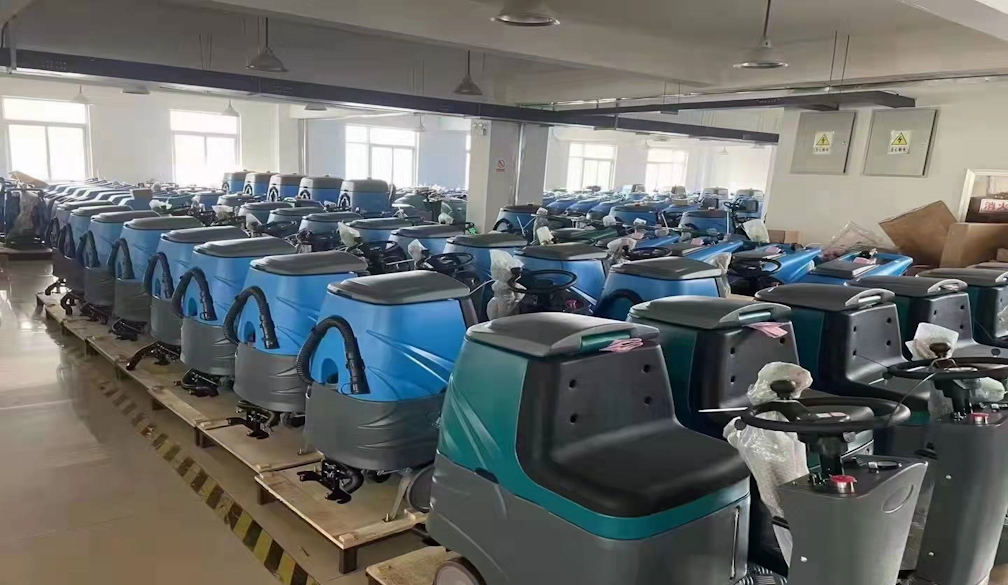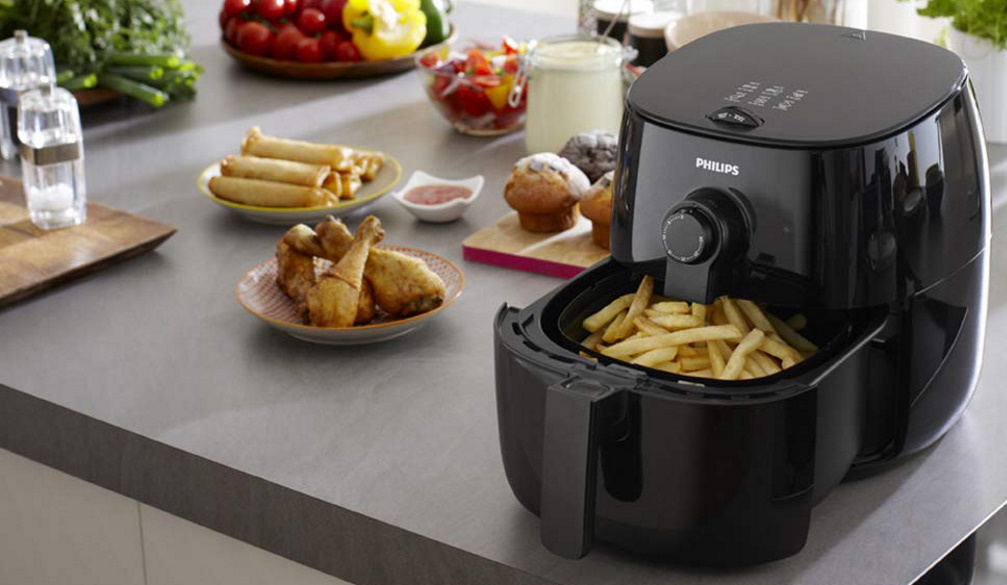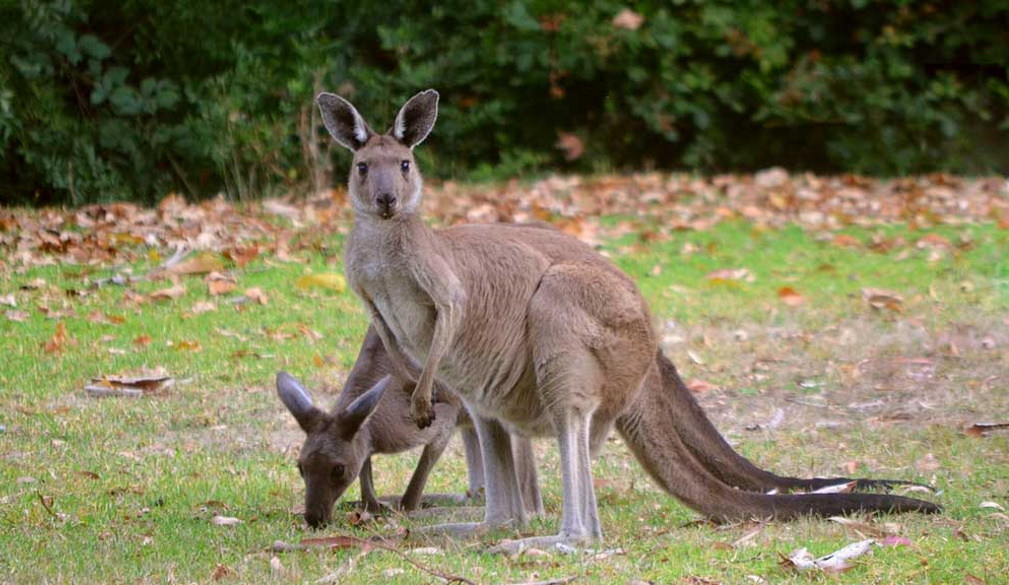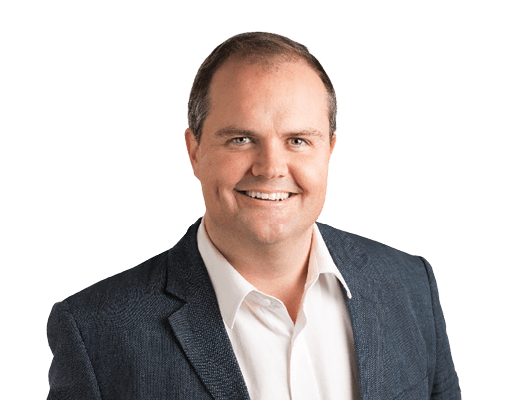Prime Minister - Media Statement - National Cabinet Statement
- Written by Scott Morrison

The National Cabinet met today to discuss Australia’s COVID-19 response, recent outbreaks of COVID-19 and the Australian COVID-19 Vaccine Strategy.
National Cabinet continues to work together to address issues and find solutions for the health and economic consequences of COVID-19.
National Cabinet again discussed the increasing outbreak in Greater Sydney and the additional measures introduced by the New South Wales Government to stop the spread of the delta variant of the virus as well as the lockdowns in Victoria and South Australia. National Cabinet has agreed to a suppression strategy for COVID-19 with the goal of no community transmission.
All leaders expressed their full support for NSW to get on top of the current outbreak. National Cabinet noted the Commonwealth's extension of the COVID-19 Disaster Payment support for Greater Sydney and Victoria, based on Commonwealth hotspot declarations.
Since the beginning of the pandemic there have been 32,582 confirmed cases in Australia and, sadly, 915 people have died (not including the death today of an 89 year-old man in Sydney, which will be included in tomorrow’s official figures). More than 23.6 million tests have been undertaken in Australia.
Testing has increased nationally over recent days with 1.1 million tests reported in the past 7 days.
Globally there have been over 192.5 million cases and sadly over 4.1 million deaths, with 526,634 new cases and 8,197 deaths reported in the last 24 hours. The COVID-19 pandemic continues to surge in many countries around the world.
Australia’s COVID-19 vaccine roll out continues to expand. To date 10,850,993 doses of COVID-19 vaccines have been administered in Australia, including a record 196,430 in the previous 24 hours.
In the previous 7 days, more than 1,044,184 vaccines have been administered in Australia. To date, more than 37.1 per cent of the Australian population aged 16 years and over have now had a first dose of a COVID-19 vaccine, including over 61.6 per cent of over 50 year olds and 76.6 per cent of over 70 year olds. More than 15.4 Australians aged 16 years and over are fully vaccinated including more than 20.8 per cent of over 50 year olds and more than 35.1 per cent of Australians over 70 years of age.
Chief Medical Officer Professor Paul Kelly provided an update on current outbreaks of COVID-19 in a number of locations and of both the Alpha and Delta variants. Australia has successfully suppressed a number of outbreaks since the beginning of the pandemic, built on strong health measures.
Lieutenant General John Frewen, Coordinator-General of Operation COVID Shield, provided a detailed briefing on the vaccination program. The vaccination program continues to expand.
National Cabinet received an update from the Secretary of the Department of Prime Minister and Cabinet on the four step plan to reopening and the progress of the COVID-19 Risk Analysis and Response Taskforce report and the Doherty modelling for the National Plan to transition Australia’s National COVID Response. The Doherty modelling will be considered at the next meeting of National Cabinet.
All leaders reiterated the importance of Australians, especially those in vulnerable groups, to get a COVID-19 vaccination. Both the AstraZeneca and Pfizer COVID-19 vaccines are registered for use in Australia and are proven to be effective in preventing serious illness and death, as well as limiting transmission.
National Cabinet noted that in NSW State Clinics second dose Pfizer appointments will be extended to up to 6 weeks between doses, which is within the recommended dosage timeframe approved by the Therapeutic Goods Administration.
National Cabinet agreed to meet next on Friday, 30 July 2021.
COVID-19 Disaster Payments
National Cabinet noted the significant support rolling out to individuals through the COVID-19 Disaster Payment.
As at midnight 22 July 2021, the total number of claims received for the NSW COVID-19 Disaster Payment is 713,266. This includes 422,275 unique claims received (120,463 in the 7 LGAs, 283,944 in the rest of Greater Sydney and 17,868 in Regional NSW which the NSW Government is funding). The total number of claims granted is 582,617. This includes 352,514 unique claims granted (99,294 in the 7 LGAs, 243,541 in the rest of Greater Sydney and 9,679 in Regional NSW which the NSW Government is funding).
National Cabinet noted that claims for the Victorian COVID-19 Disaster Payment opened at midnight 22 July 2021. As at midday today, Services Australia has had approximately 25,000 claims submitted, and have answered approximately 3,500 calls.
National Freight Movement Code
National Cabinet noted that recent changes to Health Orders by a number of jurisdictions have created inconsistent arrangements between jurisdictions for freight drivers.
National Cabinet requested that Transport Ministers work with AHPPC to ensure there is greater consistency in the application of health measures for freight workers under the Freight Movement Code so that the Code continues to support the safe and efficient movement of freight across Australia.
Quarantine
National Cabinet agreed to the Terms of Reference to the second National Review of Hotel Quarantine Arrangements. The Review will be led by independent reviewers Ms Jane Halton AO PSM and supported by Mr Graeme Head AO, drawing on professional and technical expert advice including Professor Peter Collingnon AM and Professor Andrew Wilson.
PRIME MINISTER: Thank you everyone for joining us in these conditions. National Cabinet met today in what are very challenging circumstances all around the country. But, particularly in three states - in New South Wales, Victoria and South Australia - and especially in New South Wales, in particular in my home city of Sydney. Within New South Wales, the challenge is great, just as it was last year in Melbourne and across Victoria. The Delta variant - as I’ve been saying for sometime, as have the premiers and the other chief ministers - the Delta variant presents a very fresh challenge and we have to adapt and we have to change on occasions how we do things, just as countries are all around the world, whether they be in Singapore, South Korea, Taiwan, indeed of course here in Australia and across Europe and other parts of the world. That’s the nature of the Delta variant.
So, in New South Wales, as we continue to combat this in Sydney, what I want to say to those in Sydney is we've got to press on. We've got to continue to show that strength. We’ve got to continue to support each other. There are no easy solutions here. There are no silver bullets, just as there were not last year when Victoria went through their prolonged lockdown. This thing only gets beaten by suppressing it. Of course, vaccines can put wind at the back of those who are trying to achieve that outcome, and that's what we have to do. And, today at National Cabinet we had a rather lengthy and extensive discussion about the situation in New South Wales. And, I want to thank the New South Wales Premier for her candour in sharing her plans and her arrangements with her colleagues. It was a very good opportunity for people to provide their insights, their support and their feedback, in particular for what is happening in Sydney. And, there was strong support for New South Wales in the considerable efforts that they are undertaking.
But, even more significant than that, there was strong support for the people of Sydney and of New South Wales. Just as Victoria pushed through last year, New South Wales, I know, will push through. And, it's important that we actually come together at this time in Sydney and across the state and to look forward at what we have to do. The key to the answer in New South Wales is every single person who lives there. The support is there, increased economic support, the plans and the protections that are being provided by the State Government. There are no perfect solutions here, and by simply focusing on what's ahead and what we have to do each and every day, that is what sees us through this time. So, I want to encourage my fellow New South Welshmen and women as they go through this hard part. And, it is tough. It's frustrating, and it's, it really can get people down. But, that's why we put the mental health support in as well. And, so, today it was a good opportunity to work through further supports, further solutions that can carry that issue forward, which I'll come back to in a second.
The National Cabinet once again updated on the timetable for developing our four step plan. We will soon receive that first set of advice from the Doherty Institute that takes into account the Delta strain. We will then work with the treasuries around the country, including the Commonwealth Treasury, to bring together a first set of advice that premiers, chief ministers, myself can work through. This will be an iterative process. It won't all be solved at one meeting, and we undertook today to meet as regularly and as often as we, as we have to to get that job done, to set those benchmarks and targets that need to be achieved for vaccination, to put those against the national plan that we have agreed already in its stages, to ensure that that can provide the road out. And, we hope that also is of great encouragement to everyone who is going through those lockdowns at present and will into the future.
We noted progress on the vaccination program more broadly today. Another record day - almost 200,000 vaccines delivered in one day. This program goes from strength to strength each and every day now. And, that means we have turned that corner and we are hitting those marks that we need to hit to ensure that the vaccines rollout all across the country. And, we cannot disrupt the flow of that. We need to keep going in ensuring that people are going out there and getting those vaccines. Both vaccines work effectively. Both vaccines are licenced for use and approved for use in this country for those over 18. And, as today we learnt with the Pfizer vaccine, for those over 12, and I'll return to that in a moment. But, those vaccines are important and I'd encourage people right across those age spectrums to access those vaccines that are available to you, to talk to your GP. We've got more pharmacists coming on, more GPS coming on, the state clinics ramping up, particularly in Sydney and particularly in those hotspot areas that are most the focus of our attention at present. And, particularly those both who are older and those who are younger, and the Premier has had more to say about that this morning.
A couple of other quick points. The freight code - which was really important to keep trucks moving between and across state and territory boundaries - we have tasked transport ministers to go back to that code and the AHPPC, the medical expert panel, to make sure that we've got greater consistency in the testing regimes that are being used by those trucking companies and the drivers. We've had the feedback that it's, needs some attention. It needs to be firmed up again and make sure there's greater consistency in the rules that are being applied. The truckies, they're doing a great job keeping Australia moving and we want to minimise that inconvenience for them. They're being completely compliant and completely cooperative, and they'd like to see those rules just a bit easier to comply with and a lot more consistent. We’ve heard you, and we'll task those ministers to get that sorted over the course of the next week. In addition, we’ll be reviewing further situations regarding shipping coming in around the country and making sure arrangements around crew are as they need to be.
The further review of hotel quarantine now due, that will be completed and will be commissioned to be undertaken by the end of September. I note that Multiplex has been appointed as the tenderer to construct the quarantine facility in Victoria by the Commonwealth Government, and then working in partnership with the State Government. And, there are feasibility assessments already underway in Queensland and in Western Australia.
If I can come back to the situation in New South Wales. First of all, I note that there's been significant support already provided into New South Wales, and it'll keep flowing. Some $290 million has already gone out the door to support some, just over [3]50,000 people across Sydney and New South Wales to keep them going through this lockdown. Those people in Sydney and across New South Wales who have already registered for that payment now, that payment will keep coming week after week after week, for as long as the lockdown goes. You do not have to go back and reapply for that payment. It is a recurring payment now, and you can rely on that continuing to support you. If you become in need of that payment, you can go and apply for it going forward. If you're not receiving it now, but you find yourself in a situation where you need it going forward, you can go and make that application.
I should also note in Victoria, we have had some 25,000 claims submitted, because theirs started today, for those COVID Disaster Payments. At midday, they’d answered approximately 3,500 calls. And, what is positive is that in the same way we've been able to cope with that demand - as I said already supporting over 350,000 people in Sydney - then we're confident that that will continue for people in Victoria. And, next week that process will start for those in South Australia.
In New South Wales, we discussed today the need to continue to suppress the virus to get us back to that point of removing community transmission infectious in the community of those cases. The goal has not changed. Suppression is the primary tool to achieve that, and vaccines can help that. To that end, we discussed, and will be confirming over the next 24 hours, the ability for in New South Wales, in their state vaccine centres, for them to do greater amounts of first doses by staying within the medical advice, the ATAGI advice, which says that second doses of Pfizer can be extended out to six weeks. So, that is an existing regulation. It is an existing approval. It is existing medical advice. So, to increase the amount of first doses that can be delivered, maximising greater the supply we have available, then we’re working to put in that in place in New South Wales because of the situation that exists there. And, that is important to be able to achieve.
In the same way, we've had the flexibility to bring forward AstraZeneca second doses. Now, that is especially important for all of the population, but in particular those who are elderly, who I've said are most at risk during a COVID outbreak. So, I am very keen to ensure that if you haven't had your second dose, if it's been four weeks, then please book yourself in for that second dose so you can protect yourself in the midst of this particular outbreak, and we'd encourage you to do that.
There was also widespread agreement, there was agreement amongst the National Cabinet that we need to continue to lean in to AstraZeneca, particularly in New South Wales, supporting that both through the pharmacies, as I announced yesterday, the GPs, and also through the state-based clinics. Those vaccines are available to you in all those clinics. It is licenced, it is approved for all ages with informed consent for those under the age of 60. And, we'd encourage you to do that because if you're vaccinated, you're less likely to transmit, you're less likely to get the virus yourself, you're less likely to get serious disease, you're less likely to be in hospital, and you're less likely to suffer a fatality. So, whether it's AstraZeneca or whether it is, it is the Pfizer vaccine, both of those are important. And, as Kyle Sandilands said, ‘Get Vaxxed Baby’. That's what we need in New South Wales. That's what we need indeed across the country. And, we're putting those supports in place.
Where there is a potential to put more vaccines into New South Wales, even beyond what we're already doing, well, of course, we will seek to do that. But, we are not going to disrupt the vaccination program around the rest of the country. That vaccination program is going and is hitting as it marks, and we want that to continue. The Delta strain of the virus is obviously very fast transmitting and we need all the other states and territories to be continuing to get up to the mark, the marks that we need to set for ourselves to ensure we can get this job done this year. Thanks for your attention.
JOURNALIST: Prime Minister, what position did you take on New South Wales’ request for extra Pfizer doses? Do we understand from your comments there that New South Wales won't be getting extra Pfizer doses in the immediate future? And, will you build a federal reserve so that in the future the Commonwealth has some extra capacity to give states Pfizer doses when there are outbreaks?
PRIME MINISTER: Well, we have already given New South Wales an additional 150,000 doses. That was in immediate response to the request the Premier made of me on the 7th of July. And, they have been provided, along with an additional 150,000 AstraZeneca doses, and more doses as they're available will be provided to New South Wales. And we’ll work with them on that. So, no, your assumption wouldn't be correct.
JOURNALIST: Were there any extra doses, were there any extra doses today? And, what position did you take on New South Wales’ request?
PRIME MINISTER: Well, I don’t discuss what happens in National Cabinet. But, what I'm saying is the Federal Government will be working to support New South Wales, and where there are extra doses that can be provided to support the plan that is in place there, then that's what we'll do.
JOURNALIST: When would they be available?
PRIME MINISTER: When they're available to be provided.
JOURNALIST: Prime Minister, do you expect that the New South Wales Premier will now accept the assistance from the Defence Forces? And, what difference would the Defence Forces actually make on the ground in Sydney?
PRIME MINISTER: Well, last year, the Defence Forces through Operation COVID Assist in Victoria were enormously helpful. And, of course, those offers have been available in New South Wales for some time, as they have in all states and territories that find themselves in this situation, indeed, as they were in Victoria last year. That includes planning and logistics and liaison support through their agencies. It includes qualified medical personnel supporting testing locations. It included supporting Victoria Police through metropolitan control points. There was an ADF assessment team supporting Emergency Management Victoria's Regional Control Centre. ADF personnel partnered with Department of Health authorised officers to conduct community engagement patrols. There was support to Victoria Police on community outreach. They supported the police assistance line in Ballarat. There was also support for contact tracing and data management. ADF personnel even undertook driver and general duties to support emergency vehicle crews, and there was particular support provided to the Aged Care Response Centre.
So, the involvement of the ADF is not in, necessarily always in an enforcement or compliance mechanism. In, in fact, it's specifically not in that, because they are not legally authorised officers to undertake compliance and enforcement. That has to be done properly by those authorities in New South Wales or in Victoria, as it was last year. There is a broad array of supports that the ADF can provide, and currently the ADF right across the country is providing a large amount of support - some 1,200. There are already 252 ADF in New South Wales right now. In Victoria, there's some 300. There's 228 in Queensland, there's 121 in South Australia, and in the other states as well. In fact, including 147 in the Northern Territory. Operation COVID Assist continues to rollout around the country and is available to those states for those purposes.
JOURNALIST: Daniel Andrews, the Victorian Premier, says a ring of steel around Sydney is necessary. Noting how transmissible Delta is, it's already leaked from New South Wales, was that discussed in the meeting? What is your view? Is it necessary?
PRIME MINISTER: Well, the only view that matters on this is the view of the New South Wales Premier, because they're responsible for how they manage the lockdown in New South Wales. Of course, the Premier discussed these issues with her colleagues today and myself, and there was, I think, good and positive discussion around that. It was a good opportunity, I think, for the New South Wales Premier to spell out in very specific detail the extensive lockdown that is in place in New South Wales. There's nothing light about the lockdown in New South- in Sydney, I can assure you. My family are in it.
JOURNALIST: Is it efficient for other states and territories to be protected?
PRIME MINISTER: Well, what we've seen in New South Wales, as the Premier has already indicated, on the single case that arrived in Orange, they went into a seven-day, seven-day lockdown immediately. And, in fact, out of the, I think, the five LGAs specifically, there is no basis for anyone in those areas, in those hotspots, which account for the overwhelming majority of cases, to leave the metropolitan area or their own area at all, regardless of what their job is. That's even far stronger than existed last year, where there were exemptions around particular employment categories in Victoria. So, I think it was a good opportunity, I suppose, to dispel any concerns that this was not a very strong lockdown being put in place for the residents of Greater Sydney to comply with. I'm quite certain that people living in Greater Sydney do not feel they're under loose restrictions. They are under very tight restrictions, particularly those living in those most affected areas.
JOURNALIST: Do you believe that the virus is out of control in Sydney? And, do you agree that that presents a national emergency, as the Premier said?
PRIME MINISTER: Well, I've been, I've been treating COVID-19 as a national emergency for the last almost two years. And, that hasn't changed in that entirety of the time we've been managing this pandemic. Lives and livelihoods have been at stake right across the country this entire period. What I would note from the data we're seeing coming out in New South Wales is they've prevented the exponential growth that we've seen in other countries, which has taken hold with Delta. So, they've been able to suppress that exponential rate of growth, which is very important. And so, you know, when you've got exponential growth in cases, that's what you'd call out of control. And, that's not occurring in New South Wales. And, I'd, I'd reassure people in Sydney, in particular, that what you're doing now is saving lives. It is working to bring this under control. In Victoria, when they went through the lockdown, they saw cases rise and rise and rise for many, many weeks while they were in lockdown. And, that's what occurs when the virus is operating in this, in this phase. And, so, the lockdown is the most important factor in arresting the growth - first, in cases, which they have had some success in achieving, and will have more, we believe. But, then it is the task of seeing it come down, and the lockdown and the suppression is the key vehicle through which that is achieved. That is the experience of what we've seen in other parts of the country. And, so, that can be assisted by the vaccine program, and that's why additional support is going into the vaccine program and has been given in New South Wales already to assist that lockdown process. It's the same reason why the payments are there and the economic supports, to support the lockdown, because it's the lockdown that is the principal tool that will see Greater Sydney and New South Wales through this. And, that's why Sydneysiders, and New South Wales more broadly and all those impacted, we've just got to push through.
JOURNALIST: Prime Minister, National Cabinet decided in June that it was not going to proceed with …
PRIME MINISTER: I can’t quite hear you, I'm sorry.
JOURNALIST: Prime Minister, National Cabinet decided in June that it wasn't proceeding with identifying professions that would get priority access to vaccines, beyond the handful of ones that initially got it. We're now seeing outbreaks in essential workers in Sydney, which is similar to what happened in Melbourne. Was that a mistake? And, are you reconsidering giving priority access to younger workers in supermarkets, for example, access to Pfizer, who haven't been able to get it? And, just as a second, if I may, do you agree with Brendan Murphy's comments that even if we had higher rates of vaccination, we still may be going into these lockdowns?
PRIME MINISTER: Well, that's the evidence, on your latter point, that’s, that's the lived experience of countries all around the world who do have higher rates of vaccination. I don't think that's an opinion. I think it's a fact. And, I've been making this point for some time. That is the nature of the Delta variant to the coronavirus, to COVID-19. So, I think Professor Murphy has simply stated a clear fact. And, that's one we need to bear in mind, and that's why this is such a significant challenge.
AstraZeneca is available across the population through informed consent, and we’ve seen tens of thousands of young people taking that up, and people should talk to their doctor and make their own informed consent decision about that. Younger people who have been in, particularly health worker occupations and those sorts of things, as you know, were given those access to other vaccines in the earlier stages of the program, and that's also been important. The program that the Premier is working through now and that we have been discussing for the last week, in fact, and yeah about the last week, I would say, well certainly the last few days, is how especially we can be targeting those workers who might be in food processing, that is, the distribution centres that are particularly present in those areas to ensure that supplies can be maintained. And, and I think that's another effective area of focus. And, I know the Premier is very focused on those key spreader demographics and occupations at the moment. And, that's the reason for having the change, well, not the change, but taking advantage of the three to six week rule on the second dose and bringing forward more of those first doses that would make that more plausible to achieve.
JOURNALIST: So, will those younger workers get priority access?
PRIME MINISTER: I'm sorry, I can't hear you.
JOURNALIST: Will those younger workers get priority access?
PRIME MINISTER: So, that's a matter for the, how the Premier is putting that plan in place. She's asked us to help her in that, in that program. And, we're doing everything we can, consistent with the national program, to support her in that effort. But, I'd stress again, if you're in the particularly vulnerable group, I would urge you to go and get your second dose of that vaccine, or indeed your first. And, that is for older age groups. If you're in the younger age groups, go and see your doctor, go and chat to them, have a chat to them about the AstraZeneca vaccine in particular, and make an informed choice that enables you to take a decision that can see you more protected, see your family more protected and your community more protected. Thank you very much.








